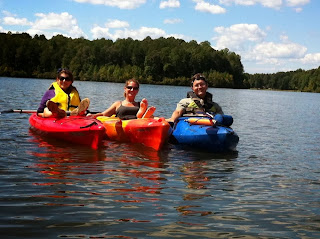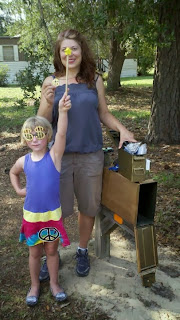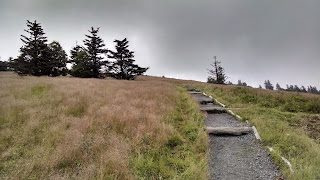 I have always followed weird obsessions and pursued hobbies with a vengeance. People who know me well are not at all shocked when I order 20 books via InterLibrary Loan on Mormon Fundamentalism/Polygamy, or serial killers, or dissertations on slash fiction. Nobody blinks when I take up rollerskating or off the wall fandoms. But a few people raised their eyebrows when I told them I was using my GPS unit to crawl around in the woods to search for tupperware containers.
I have always followed weird obsessions and pursued hobbies with a vengeance. People who know me well are not at all shocked when I order 20 books via InterLibrary Loan on Mormon Fundamentalism/Polygamy, or serial killers, or dissertations on slash fiction. Nobody blinks when I take up rollerskating or off the wall fandoms. But a few people raised their eyebrows when I told them I was using my GPS unit to crawl around in the woods to search for tupperware containers. Geocaching is basically high-tech treasure hunting. One only has to set up an account at http://www.geocaching.com in order to play the game. People hide containers of various sizes, and finders use their GPS units or smart phone apps in order to locate the containers. The containers can range in size from very large ammo cans to tiny button-sized "nanos" only large enough to fit in a small slip of paper. People have turned sticks, tree stumps, PVC pipes and fake sprinkler heads into cache containers. If it can fit a sheet of paper inside, someone has invariably turned it into a cache. If the container is large enough to contain objects, or swag, it's ok to take something, but it is expected that you will leave something of equal or higher quality. When you find the cache, you must sign the physical log, and then you log it online.
When I have taken non-cachers, or "muggles" out and about, they are always surprised at the sheer number of containers they drive or walk past every single day, unaware. Within 50 miles of my home, there are 7550 caches, and the number increases all the time. Muggles are often amazed by the number of caches I have found, which is upwards of 2,000. However, I know many cachers who have passed the 10,000 mark. It's rather addictive.
So, what is so compelling about this seemingly odd-ball hobby?
It can be a very inexpensive hobby. Once you have invested in a phone app or a handheld GPS unit, you only have to pay for the gas required to drive around and find caches. Some hobbies, such as golfing, require a huge investment in equipment. While I know cachers who constantly upgrade their GPS units, it is not really necessary to do so, if you invest in a decent unit up front.

It can help with physical fitness. Those who are goal-oriented may find merely hiking or running tedious, but when one hikes 5 miles and has plenty of caches along the trail, one can focus on the hunt and not on the exercise itself. Granted, there are many cachers who focus on caches that are close to their cars (Park and Grabs), but it is possible to take long hikes, kayak, ride bikes, or climb trees while caching. It is also possible to climb around storm drain systems underground, which, though not for everyone, certainly burns calories. I have spent the day in the swamps wearing chest waders, and I have walked across rope bridges, climbed towers, and done other semi-dangerous activities for the sake of a find, or a "smilie".
Caching allows one to find the most interesting spots in any locale while traveling. Whenever I visit a new city, I use a nifty feature. I sort my searches by "favorite points" and go for the ones that have been favorited the most. Local cachers often hide caches near what they consider the "best of the city". Sometimes, these caches will lead out-of-towners to hidden gardens, interesting architecture, cool historic sites, old cemeteries, and other areas that may be left out of the mainstream travel guides.
Finding other cachers gives this hobby a fun social component. At first, I was a solitary cacher. My family enjoyed it from time to time, but I was really the one who was the most obsessed. Over time, I gradually began meeting other people as wacky as myself, and I found that caching with other people was far more fun that caching alone. There are regular caching events where we all get together, usually over food and beer, and shenanigans usually follow. The North Carolina Geocaching Organization sponsors an annual, state-wide event called "Fall Fling", where NC cachers gather and celebrate.
Caching is always an adventure. You never know what you are going to find, or how the cache will be hidden. Whether you are doing a "power run", where you find a string of caches laid out about every .1 mile, or you are spending your entire day looking for one complicated cache, you can expect the unexpected. Sometimes, you are approached by the police. Sometimes, you bump into unsavory characters in the woods. Sometimes, you end up covered with mud, ticks, poison ivy, and find your keys are locked in the car. Sometimes, you go out for a cache run, and end up stopping short and spending your afternoon in a microbrewery with your buddies.











No comments:
Post a Comment